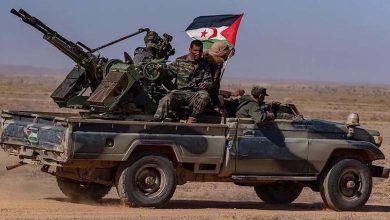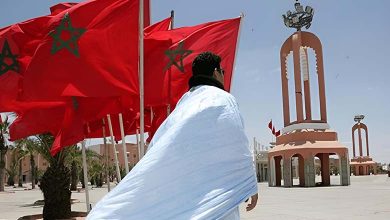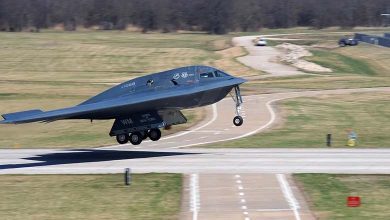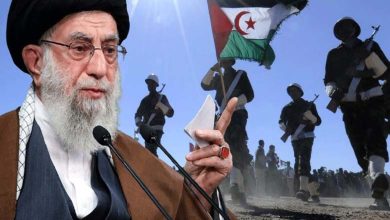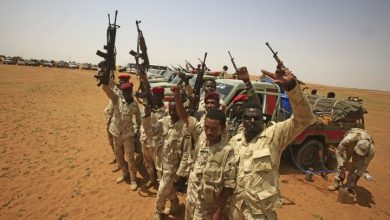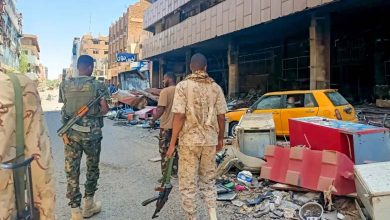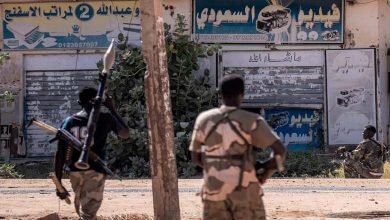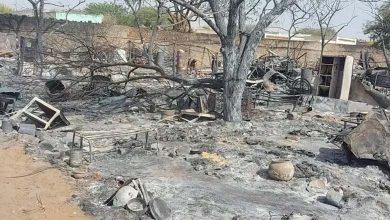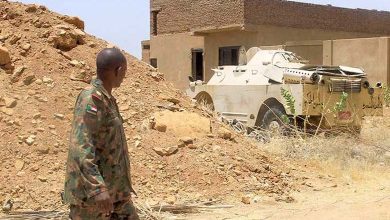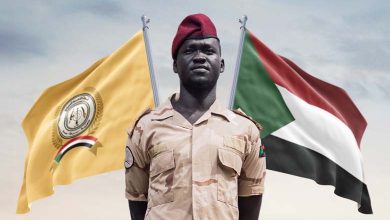Why is Iran getting involved in the Sudanese conflict?

The Sudanese army’s leader, Abdel Fattah al-Burhan, seeking Iran’s assistance raises fears of turning the Sudanese army’s allegiance towards a militia group similar to the “Popular Mobilization Forces” in Iraq, which operates internally and externally under Iran’s command, a source of funding and military support.
Arij El-Haj, a researcher in international relations and national security, stated in a report published by the Washington Institute that after a video surfaced showing elements of the Rapid Support Forces carrying debris from an Iranian-made drone, concerns arose about the return of the former Sudanese regime in its entirety to the Sudanese arena, along with its past allies who contributed to Sudan’s international isolation and inclusion on international sanctions lists for three decades.
Fears of turning the Sudanese army into a “popular mobilization” under Iran’s command, a source of military support, have been expressed.
Bloomberg reported that Iran is supplying the Sudanese army with shipments of Iranian weapons and “Mohajer 6” drones manufactured in Iran, demonstrating Iranian interest in Sudan. With Sudan’s maritime borders extending to approximately 670 kilometers, and by controlling Sudanese ports, Iran and its allies would gain a foothold in a strategically important trade route near Yemen, Saudi Arabia, and Israel.
The army relied on these new weapons in battles in Omdurman and Khartoum “in an attempt to change its strategy from defense to offense.”
In a speech delivered to officers and soldiers of the 11th Infantry Division in the city of Khashm al-Qirbah in eastern Sudan, al-Burhan called on the army and allied armed movements to carry out a wide-ranging attack against the Rapid Support Forces, aiming to expel them from all areas under their control.
In the context of political solutions and negotiations to end the war, al-Burhan emphasized in a speech in Kassala the necessity for these negotiations to take place within Sudan and not to be conducted by traveling to meet any external party, referring to an upcoming meeting with the head of the Civilian Democratic Forces Coordination “Forces of Freedom” Abdullah Hamdok.
He stated that the initiative of the Intergovernmental Authority on Development (IGAD) does not represent the will of the Sudanese people or interfere with Sudanese affairs. He said, “No external party will impose solutions on us.”
The Kizans
Does the Iranian regime militarily support al-Burhan?
With the ongoing war and no solution in sight, international interventions seeking their interests in Sudan have increased, betting on various factions to gain more influence in a country plagued by turmoil.
The dominance of the Islamic Movement axis “Kizan” has become evident, especially after the suspension of the Jeddah platform and the halt of negotiations to end the war, with Sudan rejecting the IGAD initiative, which it described as “biased towards the Rapid Support Forces and its leader, Lieutenant General Mohamed Hamdan Dagalo.”
Abdul Fattah al-Burhan, who has made the eastern part of the country his capital, specifically in Port Sudan overlooking the Red Sea, faces accusations of being supported by the group of the former regime of Omar al-Bashir and its Islamic leadership, alleging they are the mastermind behind the war.
This group, known as “Kizans,” still maintains relations with Iran, with its former leader Hassan al-Turabi being one of its loyalists.
Historically, there has been a strong relationship between the Sudanese Kizan and other Islamic organizations in the region such as Hamas, Al-Qaeda, and Hezbollah. In the past, the relationship between Iran and Sudan, which was under the rule of the Sudanese Islamic Movement led by al-Turabi and President al-Bashir since 1989, was close, and this relationship continued until January 2016, when it was publicly severed due to the storming of the Saudi embassy in Tehran.
Now, after the settlement between Riyadh and Tehran, these tensions have eased, and the interests-based relationships between Iran and its traditional partners in Sudan have resumed.
In reality, the possibility of maintaining these relations unofficially persists even during periods of tension, as many individuals engaged in the Islamic movement have contacts outside Sudan, including with Qatar and Iran, even during times of cooling relations between Tehran and Khartoum.
Recently, Egyptian authorities arrested businessman Abdelbasit Hamza in Cairo, who was close to former Sudanese President Omar al-Bashir and his party.
The U.S. State Department confirmed that Hamza was classified as a global terrorist, noting that he had provided financial support to the Hamas movement amounting to approximately $20 million, indicating that Sudan’s ties with foreign armed groups have not been completely severed.
In what appears to be a revival of old relationships, a statement from the Sudanese government in October 2023 indicated that the two countries, Iran and Sudan, “discussed the restoration of bilateral relations and accelerated the steps to reopen their respective embassies.” Media reports stated that “Tehran received a promise from certain figures affiliated with the Islamic movement to cooperate with it and facilitate its expansion in the Red Sea if it provided the military with generous support to help resist the war.”
What makes the future in this situation even darker is Sudan’s history, which has hosted extremists and jihadists from both the far right and the far left. During the period of the previous regime, Sudan saw the presence of individuals such as Osama bin Laden, the leader of Al-Qaeda, and Carlos “the Jackal,” affiliated with Hezbollah, leading to Sudan being included on the list of countries supporting terrorism.
Comparing the existing scenarios in the region, and in other places where Iranian influence has expanded, fears are increasing, especially after calls from the Sudanese army to arm citizens and prepare for “popular resistance” and open the way for individuals to purchase weapons.
To whom does allegiance go?
The stronghold of the Sudanese army in the East is considered the most vulnerable area to Iranian expansion. The presence of the Bija tribe and its support for the Islamic movement and the army are among the prominent factors that make Port Sudan a comfortable place and a good starting point for controlling the port. The President of the High Council of Bija Watches and Independent Columns, Mohamed Al-Amin Turk, is a member of the National Congress Party and the Islamic Movement, and he is currently one of the loyalists of the Sudanese army and Lieutenant General Abdel Fattah Al-Burhan.
Under the rule of the deposed President Omar al-Bashir, the Bija tribes in eastern Sudan faced neglect and disregard for their legitimate demands, such as economic reform and political representation in the eastern region. This turned into a prominent challenge for the transitional government after the overthrow of al-Bashir, before the conflict between the army and the Rapid Support Forces erupted, with the tribes once again emphasizing their lack of effective representation in the transitional government institutions.
Mohamed Al-Amin Turk, head of the “High Council of Bija Tribes Watches and Columns”, led several tribes in eastern Sudan that rejected the peace process in the Juba Agreement, which took place between the former transitional government and armed movements.
The rejection was due to their marginalization and the selection of entities that do not represent the region for negotiations. These tribes threatened to establish a Bija state in the east, with the council announcing its intention to “declare the state of Bija”, accompanied by a new timeline to close a court in eastern Sudan.
Abdel Fattah al-Burhan, who has made the eastern part of the country his capital, faces accusations of being supported by the group of the former regime of Omar al-Bashir and its Islamic leadership.
Conflict between the East and the center has escalated more than once with the closure of the Port Sudan port and the road to Khartoum. The council closed the port in September 2022 in protest against the signing of the “Framework Agreement” internationally supported between the Central Council for Freedom and Change “Forces for Freedom and Change” and the military component, accusing the government of misrepresentation and neglect of their demands.
In addition to the Bija, there are military groups affiliated with the army with an Islamic character. For example, the Special Operations Forces, which are part of the army, consist of intelligence, shock, and special forces units, and active Islamic blocs in areas such as Kassala State and Khartoum, where they post pictures on social media showing their presence in Omdurman and images of their operations in Shendi north of Khartoum.
Several battalions, such as the Sudanese Popular Resistance in the Red Sea State, participate in the political momentum that brings together military and political leaders with the same Islamic interest.
They emphasize the readiness of reserve forces and mobilized forces to operate in various areas, with a focus on protecting the eastern gateway.
Whether Sudan’s situation is a repetition of scenarios that have occurred in the region or a scenario different from its predecessors, it is important to know that the presence of extremist military groups in Sudan and the enhancement of their status will not stop their influence within the borders but will be a point from which the surrounding area will be affected.


